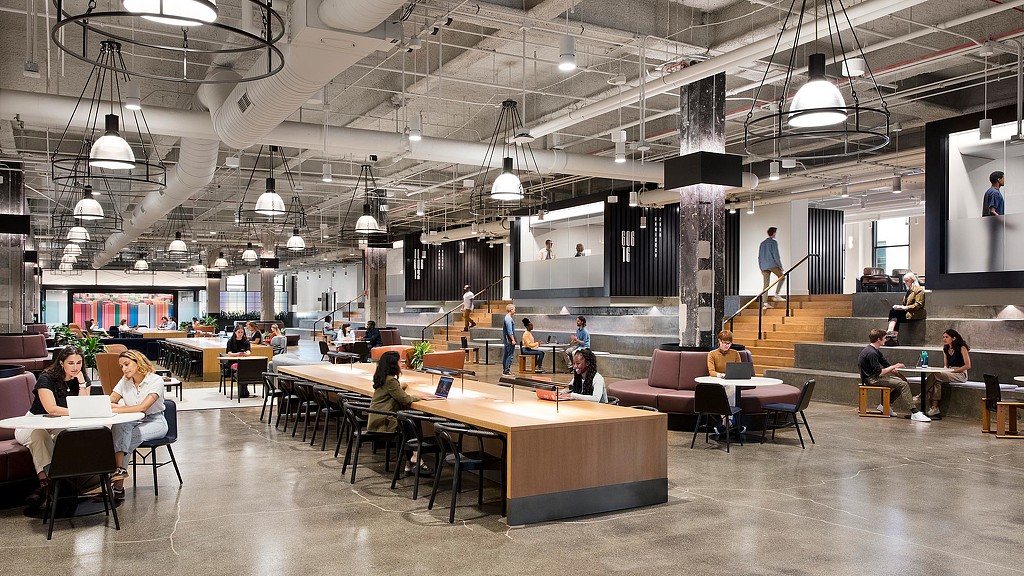June 13, 2023
New Global Workplace Study Shows Gap Between Employee Needs and Workplace Utilization
The Gensler Research Institute’s broadest global study to date surveyed 14,000 office workers across nine countries and three continents, revealing critical shifts in how employees across the world are working.
SAN FRANCISCO — A new global workplace comparison survey from the Gensler Research Institute reveals key findings that illuminate a critical divide: Employees need the office for their productivity, but the office must adapt to their new expectations — and so far, the workplace isn’t cutting it. Over the past two decades, the workplace has been on a consistent trajectory toward more diverse, dynamic, and open spaces. Having measured workplace performance since 2008, the Gensler Research Institute has been able to track the ebbs and flows of a mostly symbiotic relationship between the workplace and how employees work. Now, we are beginning to see that the two have fallen out of sync.
The report shows that 61% of employees across nine countries say they need the office to feel most productive in their work, but they lack optimal spaces for a variety of work modes throughout the day. These findings are aligned with data that says just 38% of the offices these employees work in have been redesigned since the beginning of the pandemic, a key indicator that employers must enhance their workplaces to accommodate the different modes their workforces require to attract them back into the office.
Emerging from the pandemic, organizations across the world are navigating new employee expectations alongside ‘stagflation’ — a condition of simultaneous high inflation and low growth caused by emerging geopolitical tensions, uneven pandemic recovery, and bottlenecks in global supply chains. For the first time, the stakes have been raised globally to create workplaces that optimize both performance and employee experience. Gensler’s Global Workplace Survey Comparison 2023 offers data-based learnings for how organizations can leverage the workplace to create supportive and experience-rich environments where employees choose to work.
Key findings and data:
Shifting Priorities: Employees’ relationship to the office has changed more than ever before.
- On average, employees spend 50% of their typical work week working at their company’s office.
- On average, employees across the world spend 42% of their time working with others (virtually and in-person).
- The majority of office workers rank “to focus on my work” as the most important reason to come into the office. This is consistent across all countries except for workers in Mexico and Germany, who prioritize the office for scheduled, in-person meetings with their teams.
Walking the Talk: There’s a gap between what employees say they need and what they are doing.
- On average, workers say they need to come into the office 63% of a typical work week to maximize their productivity. Despite this, they typically only come into the office for half of the week.
- The workplace consistently underperforms for critical work activities such as working alone and working with others virtually.
- On average, 57% of meetings in the office are hybrid meetings. Workers in the UK report the highest percentage (62%) of hybrid meetings in the office.
Addressing What We Know: Better workplaces have a significant return on investment for individuals, teams, and the business.
- Consistently across all global respondents, those who work in offices that are effective and offer great experiences report that their workplace has a positive impact on a range of factors.
- 94% of employees in high-performing workplaces report that working from the office has a positive impact on their individual productivity, compared to just 45% of those in low-performing workplaces.
- 92% of employees in high-performing workplaces say that working from the office positively impacts their speed of decision-making in comparison to 43% of those in low-performing workplaces.
“The gap between current office utilization and employee need for the office is an opportunity to rethink the workplace,” said Janet Pogue McLaurin, Global Director Workplace Research, Principal, Gensler. “Providing a balanced array of work settings and amenities can not only empower employees to work better but create a better work experience.”
The Gensler Research Institute conducted an anonymous, panel-based survey of over 14,000 full-time global office workers across nine countries including U.S., Mexico, Canada, UK, Germany, United Arab Emirates, Saudi Arabia, Singapore, and the Philippines. Respondents were distributed across 10 client industries and represented a broad cross-section of seniority levels, roles, ages, and geographies. The survey was fielded between June 14, 2022, and December 26, 2022. Respondents excluded workers who have not yet returned to the office since the start of the pandemic. Download the full Global Workplace Survey Comparison 2023.
Gensler is a global architecture, design, and planning firm with 53 locations and more than 7,000 professionals networked across the Americas, Europe, Greater China, Asia Pacific, and the Middle East. Founded in 1965, the firm works globally across more than 29 practice areas spanning the work, lifestyle, community, and health sectors. We are guided by our mission to create a better world through the power of design, and the source of our strength is our people. By leveraging our diversity of ideas, our research and innovation, our shared values, and our One-Firm Firm culture, we are working seamlessly as a borderless firm in 140 countries and making the greatest impact on our communities as we continue to tackle the world’s challenges.
Media Contact:
For any media inquiries, please email .
